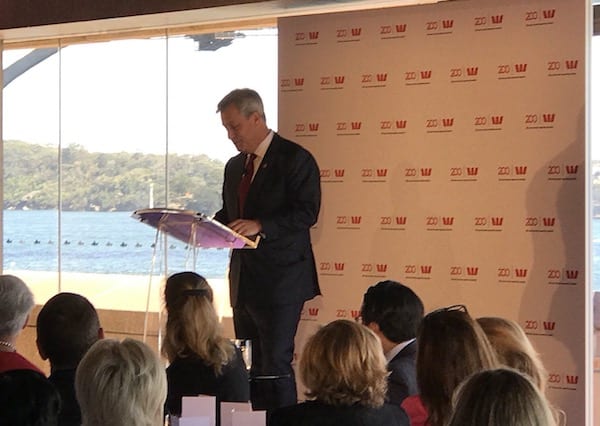The milestone was announced by chief executive Brian Hartzer in Sydney on Tuesday morning, who said that 3000 of the bank’s 6000 management positions are now held by women.
He said the achievement should be seen as a “sign post that our nation is making progress … Particularly for unlocking the potential of women.”
“Our goal is that the only limits that face young women are the limits of their own ambition, talent and dedication.”
In 2010 Westpac’s then-chief executive Gail Kelly publicly committed to reaching 40% women in leadership by the year 2014, a target it met in 2012. The bank then aimed for 50% by 2017.
It hasn’t happened easily or by chance. It has happened because targets were set, enforced and pursued. Doggedly. It was considered a core business objective, embedded in corporate strategy and had the full support and commitment from the board and executive.
The commitment of senior leadership was “absolutely critical” to reaching the 50% target, @Westpac’s Christine Parker says. #200Women pic.twitter.com/a2XJzoq86K
— Women’s Agenda (@WomensAgenda) October 24, 2017
As the bank’s group executive of HR Christine Parker said this morning, it took planning, innovation, improved flexibility and parental leave, relentless focus, and complete buy-in from the board down.
It’s also helped that the bank’s had a number of female trailblazers along the way, including Ann Sherry and Gail Kelly, who were at the event today.
Westpac was the first Australian bank to employ female teller in Sydney in October 1961. In 1978 Westpac appointed the first female branch manager in Australia in Rockhampton.
Major milestone. Westpac CEO Brian Hartzer announces women now hold 50% of leadership roles in bank. 3000 out of 6000 roles. pic.twitter.com/SLeLyRIh6S
— Angela Priestley (@angelapriestley) October 24, 2017
It was also Westpac, under Ann Sherry’s leadership, that was the first major listed company to introduce paid maternity leave.
Considering the landscape for women in leadership in Australia the enormity of Westpac’s achievement cannot be underplayed.
Women might make up 50.2% of the population and 46.4% of all employees in Australia but they remain rare in the ranks of corporate leadership.
Women hold 12.9% of chair positions, 24.7% of directorships and comprise 28.5% of key management personnel in Australia’s largest organisations. In the ASX200 there are more men named David running companies than there are females. So too, John and Peter.
Among non-public sector employers with 100 or more employees, 29.9% have no key management personnel who are women.
And yet one of Australia’s biggest banks, and most profitable organisations, has reached parity.
.@WGEADirector addresses @Westpac #200women on the importance of workplace #gender equality: “the business case is clear” pic.twitter.com/BKwx9IhwNI
— WGEA (@WGEAgency) October 24, 2017


